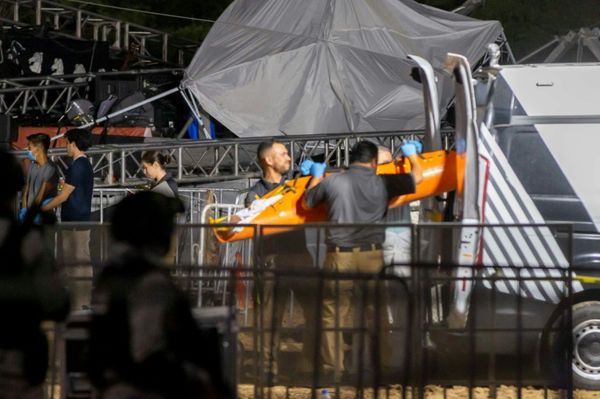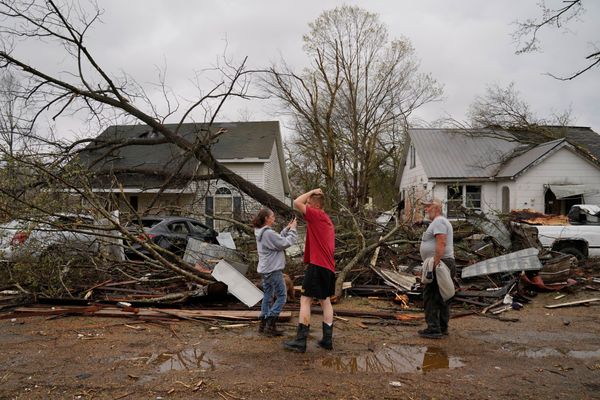
First eggs became expensive and hard to find; now it’s the chicken’s turn. When the average price of a dozen eggs reached $4.28 in January 2023, more than double the previous year’s price, and shortages due to avian flu were common, people rushed out in search of chickens. The sudden demand for backyard flocks has left many farm stores and hatcheries sold out for months.
But the cute baby chicks people turn to when starting their backyard chicken journey aren’t the only option for starting a flock. Every year, millions of hens are killed when the egg industry deems them “spent” or too old – and we could bring them into our yards instead.
“Adopt, don’t shop” has become normalized for most companion animals, and as more Americans list backyard chickens among their pets, there’s no reason we shouldn’t apply this to our flocks. When you adopt hens, I discovered, you get much more than eggs in exchange.
When I first brought Thelma and Louise home in 2020, they were two years old but had never seen the sky or touched grass. They’d hardly even had the chance to spread their wings. The two red hens had spent their lives in cages, crammed with other hens on a commercial egg farm. They were scraggly, and the feathers they had looked in need of a good preen – half broken and sticking out at strange angles. Both had been debeaked as chicks, a process that cuts the tip of a chicken’s beak so they can’t peck each other in their cramped quarters. Thelma’s had been done badly and the top of her beak stopped just after her nostrils.

They’d lived, in other words, the way roughly 70% of all laying hens in the US live. But unlike most of their fellow birds, Thelma and Louise came home to a backyard coop instead of being killed. (The US typically keeps a flock of 300 million commercial egg layers, most of whom are killed and disposed of before their second hatchday.)
In the UK, organizations like the British Hen Welfare Trust have been rescuing hens from commercial egg farms and putting them into people’s homes since 2005. Yet here in the states, people are more likely to buy chicks from a hatchery. We are missing out.
“We have to normalize the concept of chicken adoption as they’ve done for dog and cat adoption,” said Ariana Huemer, director of Hen Harbor, based in Santa Cruz, California. “There is an endless supply of hens,” she added. “We just need to connect people with them.” Since Huemer started rescuing hens in 2014, the organization has rehomed roughly 4,000.
Only a few organizations like Hen Harbor regularly rescue former commercial hens. It’s easier to do this work in the UK, which is roughly the size of Oregon, where I live. Most hen rescues can only offer adoptions to people able to pick the birds up themselves. This is one reason Kelly Rutkowski started Adopt a Bird Network, a resource connecting willing adopters with hens (and roosters) in need of homes – birds from farms, backyards and shelters alike.
It took months for me to locate a pair within a day’s drive. I finally found Thelma and Louise at a sanctuary in Washington that had rescued a few hundred. I drove six hours round trip to bring them home. Though I’d raised hens from chicks before, the transformation from baby to adult was nothing like what I found in these two. Stuck at home in lockdown, I watched Thelma and Louise regrow their feathers and get to be chickens for the first time in their lives. They jostled to nap in the best spots and were always curious about what I was doing. If I did yard work that involved digging, they were underfoot trying to hoover up the worms and bugs I’d uncovered.
Right now, much like during the Covid chick boom, people are rushing out to start backyard flocks. Yet the chicks people are buying won’t be old enough to lay for six to eight months. Rescues are worried that another baby chick boom will mean more unwanted roosters in need of homes when they start crowing (most urban and suburban areas don’t allow them). But these rescued commercial hens are all female and will lay almost immediately upon arrival.
“It’s definitely therapeutic to see the condition that they start out in – then, a month or two later, they look like totally different birds,” said Erica Camp, founder of Second Hen’d, an organization that rehomes commercial hens in Missouri. “You can say, ‘That’s because of me.’”
I love all of my flock but there was something special about Thelma and Louise. They seemed determined to get the most out of their freedom. When I ate grapes, they fluttered up to peck one or two right from the bunch. They always seemed to know how to find the best patch of sun and lie in it, wings splayed to soak up the rays, making contented burbles. Sometimes they came close to me and let me hold them or give them a quick pet. Others, usually when I needed to put them back in the coop, they ran as fast as their little legs could carry them in the other direction.
These hens, deemed too old by the industry, laid over 500 eggs between them. By the time they passed on – both from cancer – they’d lived with me longer than they’d been in a cage. The cost of eggs may be rising, but watching them come into themselves is something I could never put a price on.
Tove Danovich is a freelance journalist and the author of Under the Henfluence: Inside the World of Backyard Chickens and the People Who Love Them.







